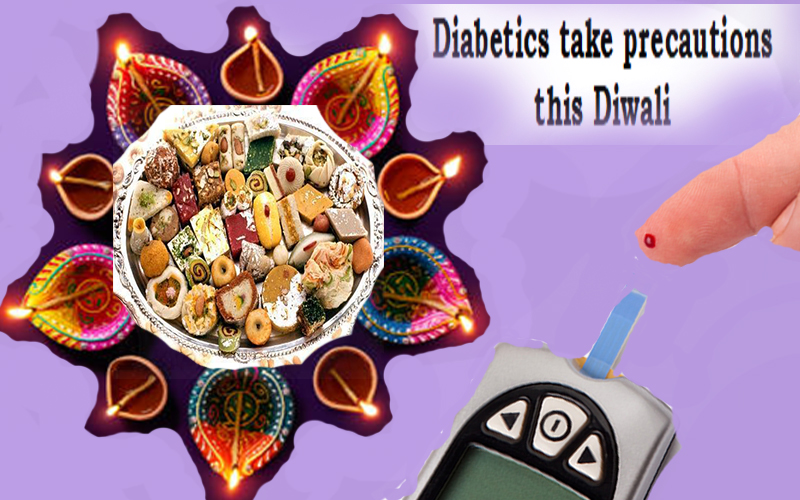Diabetics must be very cautious during Diwali and other celebrations. On World Diabetes Day, it is necessary to create awareness on managing blood sugar levels by regularly monitoring and keeping accompanying health problems away.


The International Diabetes Federation pins India as the epicentre of diabetes mellitus and the statistics is expected to be about 134 million people by 2045 [1] Diwali accords with World Diabetes Day in the 2020 and in light of the enduring pandemic, there is a necessary to create awareness about prevention and controlling of it.
Both fasting and feasting are not indorsed
Both fasting and feasting are not indorsed for diabetics. These both have impact blood sugar levels and without systematic activity or exercise, pandering sweets and other items can trigger health. Festivals are a time when people pander in sweets and snacks. For those with basic health illness such as diabetes, this excess processed food can be harmful. Apart from surging blood sugar levels, it can also effect immunity to combat other infections such as new COVID-19.
There are 2 chief reasons why a diabetes patient are more susceptible to complications from viral infection. The immune system of diabetics (both type 1 & 2) is feeble due to irregular blood glucose variations. The surge in levels of blood glucose could be constructive for the growth of virus in the body. Consequently, when diabetics get infected, it becomes tougher to treat and it needs prolonged treatment.
Patient should also not skip medicines or insulin dosage as prescribed by the physician. Regular Self-monitoring of blood glucose levels is mandatory. This is vigilant if fluctuating and also helps for timely intervention in case of necessary. Ensure to have a small portions and do not skip meals and choose food items that are grilled or roasted. Keep some healthy snacks accessible for hunger twinges and avoid undue alcohol consumption.”


Diabetics must take extra precautions during Diwali
Here are some tips.
1. Have smaller meals since that will aid in controlling blood sugar levels and keep patient nourished. Make sure to be hydrated adequately.
2. Evade snacking unhealthy food or eat healthy substitutes such as nuts etc. Evade white rice and white bread as they have more glycaemic index.
3. Make sure to go for short walks or to do 15 to 30 minutes of physical activity. For example, take the steps as a replacement for lift.
4. Keep blood sugar levels under check with regular monitoring. Do not change medicines or their schedule without consulting the doctor.
[1] https://www.ncbi.nlm.nih.gov/pmc/articles/PMC7299136/


Dr Manoj Chawla
Director and consultant diabetologist
Lina diabetes care & Mumbai diabetes research centre












